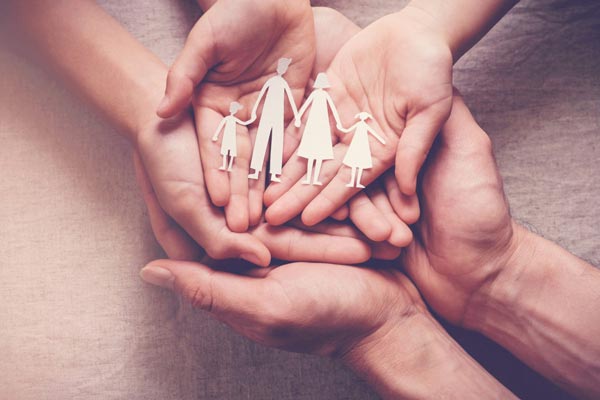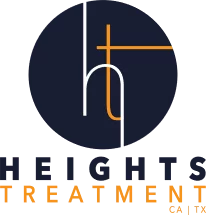Table of Contents
It’s true when you hear people say their family played a role in their addiction. Everyone affected by addiction plays a part in either helping them maintain their addiction or recovery. But, how do we define family roles in addiction for recovery, and what effects do they have?
6 Types of Family Roles in Addiction for Recovery
Family roles form over time, just like a substance use disorder–such as a drinking disorder. Little by little, each person adapts traits based on how they cope with the turmoil addiction can bring to their family. The longer the family goes without treatment, the more pronounced their roles may become. Slowly, and without realizing it, the lives of everyone in the family start to revolve around the addict.
Family roles would not exist without an addict.
1. The Addict
The addict’s role within the family is played by the person or persons with an alcohol or drug use disorder. The addict may appear selfish, manipulative, mean, and ungrateful at any given time. Their primary focus is continuing their misuse of alcohol, drugs, or both.
It is the substances that make them behave the way they do. Alcohol and drugs alter the structure of the brain, leading to dependence. When the addict tries to quit using substances, withdrawal symptoms occur. To avoid withdrawal symptoms, the addict must continue to use. They repeat this cycle daily.
The addict cannot continue the cycle on their own, however. They must get money, food, shelter, rides to meet dealers, etc. This is usually where the enabler steps in to help.
2. The Enabler
Enablers are good people. They are caretakers who want everyone around them to feel good. They convince themselves they are trying to help their loved ones feel better, but they are helping themselves feel better. It is less stressful if they give the addict money because they go away and take their drama with them, even if it is only for a few hours.
Addicts know precisely what to say and do to manipulate the enabler into giving them what they want, anything that will help them get more alcohol or drugs.
Typically, enablers spend a lot of time in denial. They don’t want to admit there is an addict in the family. They may even make excuses for the addict, explaining to others why they misuse substances, which is rarely seen as the addict’s fault. Unfortunately, enablers are helping their loved ones stay addicted, risking their lives.
3. The Hero
The hero role is occupied by a family member, usually an older sibling, who strives for perfection. By being successful in everything they do, they may feel they can counterbalance the negativity brought on by the addict. They want to bring happiness to the family to outweigh the unhappiness of addiction.
The hero is dealing with high stress that is self-inflicted.
The family hero is often seen as the perfect child. If they are perfect, that must mean their family doesn’t have problems. It must mean it is not their parent’s fault for having an addict in the family. The hero must be in control. Otherwise, it becomes hard for them to cope. If they cannot learn healthy coping skills, they may start coping with unhealthy behaviors, such as misusing drugs, alcohol, or other behavioral addictions.
4. The Mascot
Another family role in addiction is the mascot, who also wants to help their family somehow. They typically use humor to alleviate the pain everyone feels due to the addict’s behaviors. Mascots are often the youngest child in the family. They learn over time that being funny and making people laugh eases tension and stops fighting.
Their main focus is to distract themselves and others from the pain and chaos surrounding the addict. This becomes a significant problem when they cannot provide a distraction and lack proper coping skills. Mascots spend much of their time keeping the family involved in social activities, trying to gather everyone for a fun time.
Mascots put more effort into pleasing everyone else that they forget to meet their needs physically and mentally. This can become a problem in their own personal and professional relationships.
5. The Scapegoat
The scapegoat in the family is the role associated with misbehavior. They are usually the person that gets in trouble no matter what they do. They seem to be the kids diagnosed with attention problems, the teens experimenting with drugs and alcohol, and the young adults drinking and driving or participating in other risky behaviors.
The scapegoat is the family member trying to take the attention away from the addict, even if that means they receive the consequences. Some see their behaviors as a cry for help, bringing attention to their family’s problems. In either case, the scapegoat can get into serious trouble themselves if they do not receive help.
6. The Lost Child
The family member that goes unnoticed is the lost child. They don’t draw attention to themselves or their family members. They are quiet and tend to isolate and withdraw from social situations. The lost child is the one who can spend hours alone in their bedroom playing video games, watching television, reading, or listening to music. This type of isolation can hinder relationships.
Healthy Family Roles
Family members can play healthy roles and create healthy relationships when dealing with addiction. To do so, they must seek support from a counselor or group of peers that can provide guidance and encouragement. Family support groups include Al-Anon, Narconon, and other 12 Step groups. Another great program is SMART Recovery for family and friends.
Family members can learn how to replace unhealthy roles with behaviors that promote healing within the family. Individual counseling can aid in overcoming their specific role, and group counseling is beneficial for learning to function as a whole group. Finally, each member can learn how to support others in their new roles.
Setting healthy boundaries, regulating emotions, improving communication skills, and healing as a family system can happen in family therapies.
Ready for help? Give us a call, your family can start its healing journey today. You can let go of the family roles in addiction for recovery. We can help at The Heights Treatment. We offer treatment programs for addiction recovery for you or your loved one.
Sources:
- BetterHelp. Family Roles In Addiction: Can Family Help With Substance Abuse Challenges? | BetterHelp. Published August 31, 2022. Accessed October 4, 2022. https://www.betterhelp.com
The Heights Treatment Editorial Guidelines
There is a vast amount of misinformation online especially as it relates to health & wellness. We have made it our mission at The Heights Treatment to provide accurate, medically sound content that has been medically reviewed by a doctorate level clinician so that you can trust the information contained within our website.





